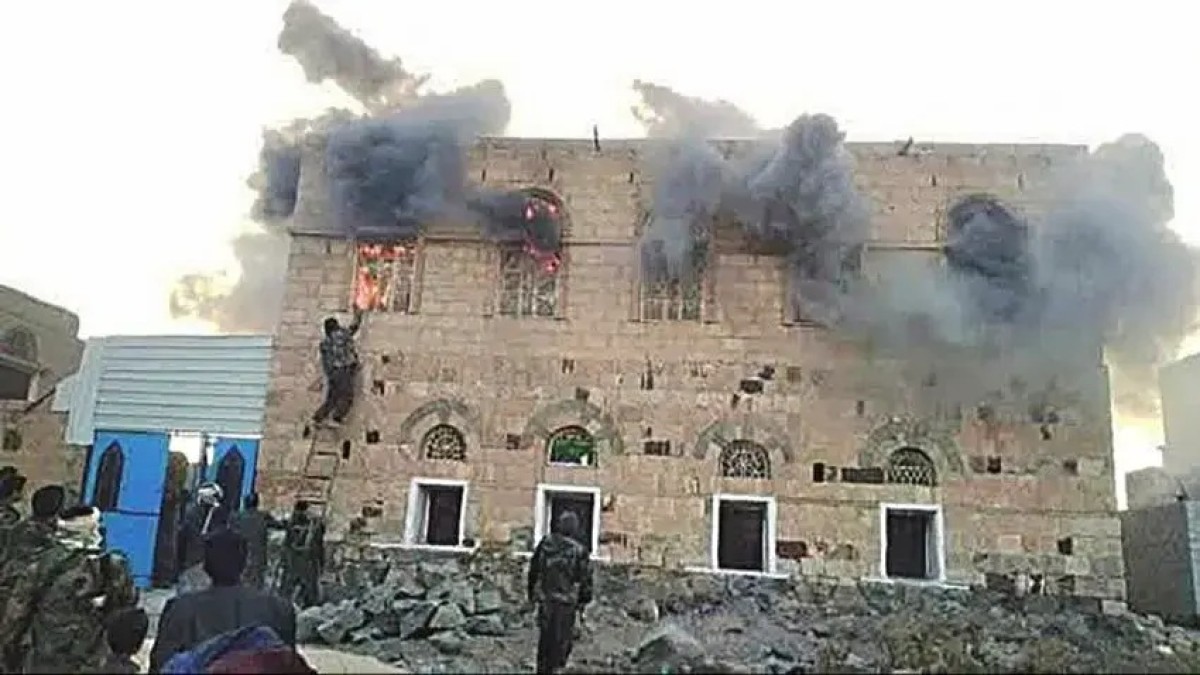Al-Houthi destroys the “heart of Yemen”... 8181 violations amounting to “war crimes”


A shocking number of violations by the Houthi militia in Al Bayda Governorate (central Yemen), revealed by a human rights report, confirming that they amount to “war crimes.”
A recent report by a human rights coalition in Yemen stated that 8,181 violations were documented in Al Bayda Governorate, which is described as the “heart of Yemen,” committed by the Houthi militias, during the period from January 2015 until this January.< /p>
The report issued by the "Yemeni Network for Rights and Freedoms", a non-governmental coalition entitled "Qifa is an open theater for Houthi terrorism", confirmed that the militia's violations claimed the lives of 842 civilians, including women and children, and injured (931) others with varying injuries, including permanent injuries.
Means of killing
The means of killing that the Houthis used to commit these crimes varied, including sniping, direct shooting, field executions, mines, bombing houses, assassinations, torture, and trampling.
The report documented (61) cases of killing as a result of sniping, (285) by direct fire, (198) as a result of indiscriminate shelling, (214) by landmines, (41) field executions, and (13) cases of killing as a result of House bombings, (18) assassinations, (14) cases of killing under torture, (8) cases resulting from being run over by militia crews and vehicles, and (17) cases as a result of Other incidents.
The report also monitored serious violations of personal rights and human dignity, including (2780) cases of arrest and kidnapping, (366) cases of forced disappearance, (132) incidents of psychological and physical torture, and (2691) violations against property and civilian objects.
p>Latest crimes
Regarding the latest Houthi violations, the report stated that “the village of Hanaka Al Masoud in the Al-Qurayshiya District was the target of a siege that lasted for more than a week recently, as the militias used drones and heavy weapons to destroy homes and displace families.”
The report revealed that 7 civilians were killed and 18 others were injured, including women and children. The militias also launched a massive kidnapping campaign that affected at least 400 civilians, including children and the elderly.
Houthi militants
It was also documented that on January 9, the Houthi militia completely bombed about (16) houses, and burned (5) others, as a result of indiscriminate bombing by drones, which resulted in the partial destruction of most of the houses in the town of “Hanaka Al Masoud” in Its seven residential communities are: Al Sarm, Al Sabla, Kabada, Al Qabil, Al Qaa, Ras Al Shifa, and Al Meshawaf.
The report indicated that “the Houthi militias launched a massive kidnapping campaign targeting the people of the village, kidnapping at least (400) civilians, including children and the elderly, and (360) of them were transferred to the prison of the Radaa Directorates Security Administration in the Al-Kamb area, while (60) others were transferred to the central prison in Radaa city.
War crimes
The Yemeni Network for Rights and Freedoms confirmed that “these crimes represent a flagrant violation of the Geneva Conventions, the Universal Declaration of Human Rights, international humanitarian law, and international human rights law, and they amount to war crimes that reflect the criminal nature of the Houthi militias.”
She explained that “the militias target innocent civilians, and implement a violent sectarian agenda aimed at spreading terror and fear among the civilian population, and strengthening their bloody approach.”
The report called on the international community and the United Nations to take urgent action to stop these violations, and to put pressure on the Houthi militia to immediately lift the siege on “the estate of the Masoud family” and provide safe corridors for humanitarian aid to enter.
Houthi militants
He also called on the High Commissioner for Human Rights and all international mechanisms to condemn these violations and crimes, work to prosecute their perpetrators and those responsible, and ensure the provision of protection for the civilian population in the affected areas.